Magical transformations are a commonplace of opera. We see our heroes turned into animals, trees, statues; witness wild beasts turned suddenly gentle and even the dead brought back to life, with scarcely a raised eyebrow. But opera’s greatest metamorphosis — and one still less remarked upon — is the annual British phenomenon of country house opera.
Auditoriums are conjured up in fields and gardens, ruins filled with light and life, and rural silence is exchanged for cosmopolitan croonings and tunings. With little more than a generator and a couple of portaloos, companies like Longborough, Bampton, Iford and Garsington serve up serious music season after season, taking risks the major metropolitan houses could never contemplate. It’s an artistic sleight of hand we’re much too apt to take for granted; too distracted, perhaps, by the black-tie trappings and social rigmarole that are its smoke and mirrors.
Specialising in neglected classical repertoire, Oxfordshire’s Bampton Opera is pretty much guaranteed to produce a show you won’t have seen before — think Paisiello and Philidor as well as lesser-known Haydn and Handel. Quality control is assured by the impeccable instincts of artistic directors Gilly French and Jeremy Gray, who have gained the trust of their audiences over more than 20 years of smart choices and even smarter stagings.
What’s unusual about Bampton, though, is the friction it maintains between its growing ambition (this year’s production will tour both to Westonbirt and London) and its total lack of pretension. The orchestra mixes professionals with performing friends of Bampton who have been with the company since its start in 1993, while evening dress is shunned in favour of whatever’s warmest and most comfortable. The results are giddily exciting, propelled by wit, charm and bags of joy.
Don’t believe everything you hear in Amadeus; there’s a great deal more to Salieri than a jealous rival to Mozart, as Bampton’s La grotta di Trofonio (Trofonio’s Cave) makes clear. A simple conceit sees two very different sisters and their equally contrasting lovers exchange personalities in the wizard Trofonio’s magic cave. Romantic chaos and comedy ensue before a second visit sets all to rights. If Salieri’s score lacks the intricate finales of Mozart’s later Da Ponte operas, it pulls ahead in the fluidity of its drama, drifting between arias and ensembles (duets and trios a particular highlight) with easy informality. Orchestral colours are painted with care, and melodies tug at the ear — just listen to Dori’s exquisite ‘Un bocconcin d’amante’.
Jeremy Gray’s production starts out as just a pretty period piece — all Gibson Girl frocks and coy glances — but grows into something altogether more anachronistic and anarchic. Gray and French’s English libretto tempers irreverence with real affection, pitching this gossamer comedy just right for a contemporary audience, and giving their young cast plenty to work with.
It’s hard to take your eyes off Nicholas Merryweather’s blissfully funny Plistene (beautiful singing a bonus), but Aoife O’Sullivan’s Dori always make it worthwhile, sparring vigorously with Anna Starushkevych’s vocally slightly uneven Ofelia. Tenor Christopher Turner does double duty as earnest romantic lead and outlandish comedy turn, supported by the impish Matthew Stiff as Trofonio himself. Doing the impossible and holding it all together stylishly despite outdoor issues of acoustics and sightlines, conductor Paul Wingfield gives loving attention to Salieri’s orchestral details, shaping a performance that, on opening night, survived set collapses, gusty winds and snapped strings with barely a musical scratch.
Combining Mendelssohn’s complete incidental music — almost never heard in full — with an abridged production of Shakespeare’s A Midsummer Night’s Dream is exactly the kind of project country house opera is made for. When your venue is as lovely as Garsington Opera’s Wormsley Estate and the drama comes courtesy of the RSC the results should be exceptional, but the awkward compromises of Owen Horsley’s production mean that Garsington’s first collaboration is more than a few fairies short of enchantment.
In lieu of a set, Horsley places the orchestra centre-stage — music, it seems, is to be more than merely incidental — but then fails to make any dramatic use of his musicians. They remain an inert body occupying some two thirds of the playing space, leaving the cast to romp noisily and urgently around them, pounding feet on wood obliterating many of Mendelssohn’s more delicate instrumental passages, sensitively conducted by Douglas Boyd.
Filleted down to almost nothing, cuts respecting neither verse nor sense, Shakespeare’s play is little more than plot, and not a very clear one at that. A neat concept sees Horsley turn his dramatic mirror back at the audience; the young Athenians flee into the Oxfordshire countryside clad in black tie and clutching wicker hampers. But having established this reflexive landscape, the director seems unable or unwilling to take things any further, leaving us with a half-cooked play full of actors in search of a purpose.
There are moments of magic: Mendelssohn’s exploratory, ecstatic opening wind chords growing not out of silence but real-life birdsong; Puck’s final speech sending us out into a torchlit landscape, moon sinking over lake. But these only serve to highlight an absence in the rest of the evening. I can only hope that Shakespeare’s ‘rare vision’ will come into focus in subsequent performances in Stratford and London.
Got something to add? Join the discussion and comment below.
Get 10 issues for just $10
Subscribe to The Spectator Australia today for the next 10 magazine issues, plus full online access, for just $10.
You might disagree with half of it, but you’ll enjoy reading all of it. Try your first month for free, then just $2 a week for the remainder of your first year.

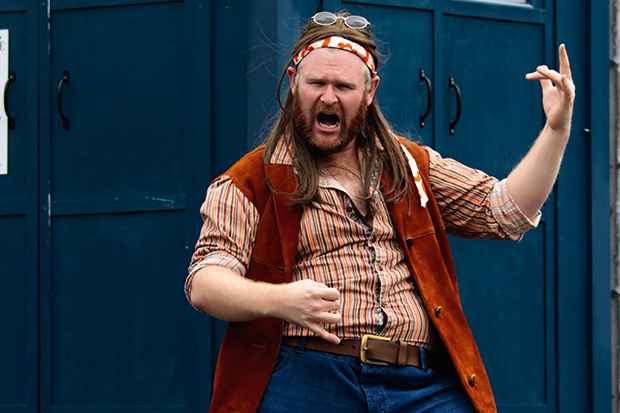
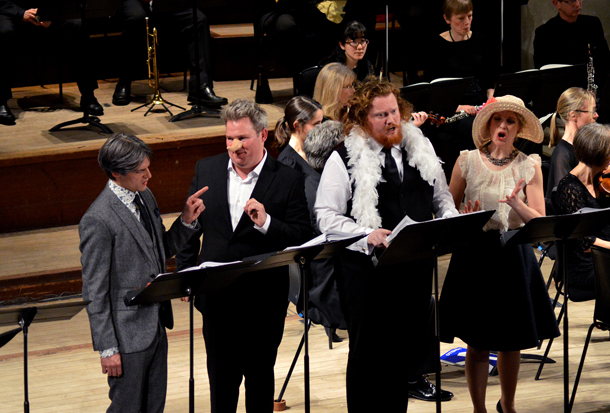

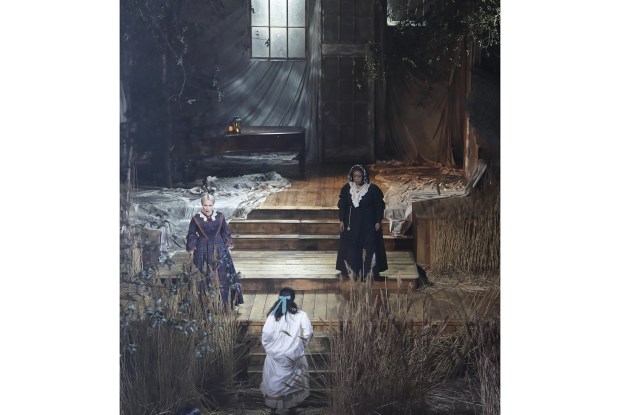
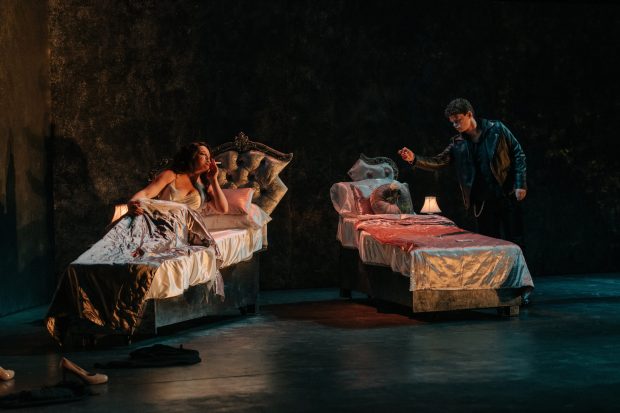
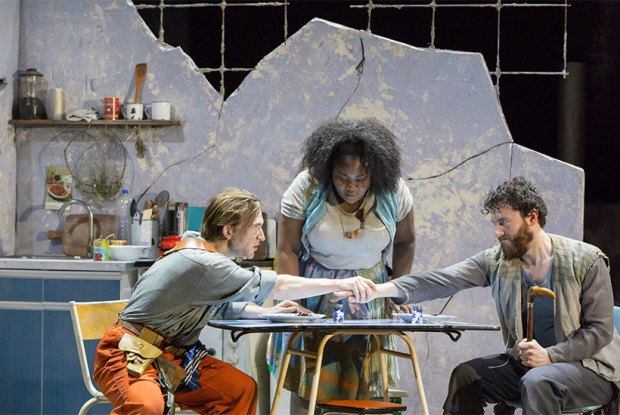
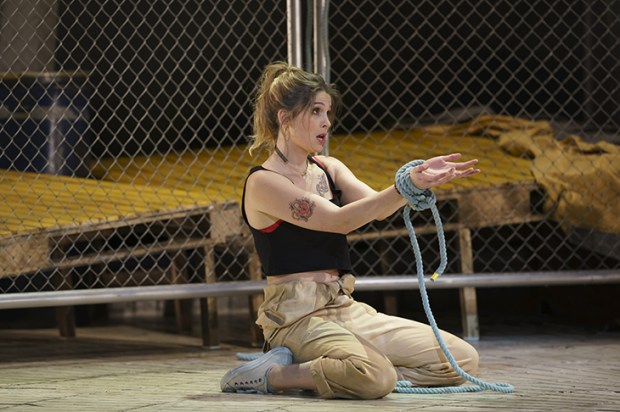






Comments
Don't miss out
Join the conversation with other Spectator Australia readers. Subscribe to leave a comment.
SUBSCRIBEAlready a subscriber? Log in